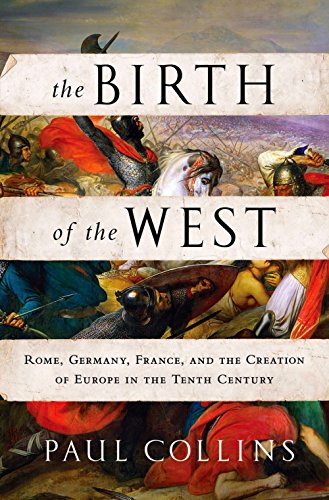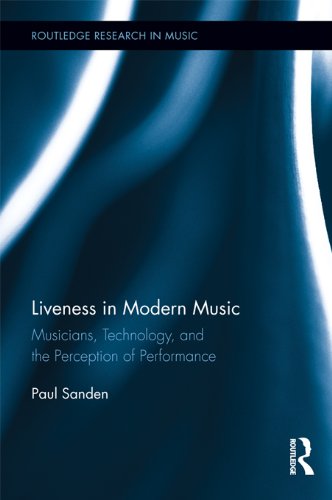Get Free Ebook The Birth of the West: Rome, Germany, France, and the Creation of Europe in the Tenth Century, by Paul Collins
After downloading and install the soft file of this The Birth Of The West: Rome, Germany, France, And The Creation Of Europe In The Tenth Century, By Paul Collins, you can begin to review it. Yeah, this is so pleasurable while somebody needs to read by taking their big publications; you are in your brand-new method by only handle your device. Or even you are working in the workplace; you could still utilize the computer to review The Birth Of The West: Rome, Germany, France, And The Creation Of Europe In The Tenth Century, By Paul Collins fully. Of course, it will certainly not obligate you to take several web pages. Just web page by page depending on the moment that you need to review The Birth Of The West: Rome, Germany, France, And The Creation Of Europe In The Tenth Century, By Paul Collins

The Birth of the West: Rome, Germany, France, and the Creation of Europe in the Tenth Century, by Paul Collins

Get Free Ebook The Birth of the West: Rome, Germany, France, and the Creation of Europe in the Tenth Century, by Paul Collins
The Birth Of The West: Rome, Germany, France, And The Creation Of Europe In The Tenth Century, By Paul Collins Exactly how an easy idea by reading can improve you to be a successful individual? Reviewing The Birth Of The West: Rome, Germany, France, And The Creation Of Europe In The Tenth Century, By Paul Collins is a very basic activity. However, how can many individuals be so careless to check out? They will certainly like to invest their downtime to talking or socializing. When actually, checking out The Birth Of The West: Rome, Germany, France, And The Creation Of Europe In The Tenth Century, By Paul Collins will provide you more probabilities to be successful completed with the efforts.
It can be among your early morning readings The Birth Of The West: Rome, Germany, France, And The Creation Of Europe In The Tenth Century, By Paul Collins This is a soft documents book that can be managed downloading and install from on-line publication. As understood, in this sophisticated period, modern technology will certainly alleviate you in doing some activities. Even it is simply checking out the presence of book soft file of The Birth Of The West: Rome, Germany, France, And The Creation Of Europe In The Tenth Century, By Paul Collins can be extra feature to open up. It is not just to open and conserve in the gizmo. This time around in the morning and other downtime are to read the book The Birth Of The West: Rome, Germany, France, And The Creation Of Europe In The Tenth Century, By Paul Collins
Guide The Birth Of The West: Rome, Germany, France, And The Creation Of Europe In The Tenth Century, By Paul Collins will certainly always make you positive worth if you do it well. Finishing guide The Birth Of The West: Rome, Germany, France, And The Creation Of Europe In The Tenth Century, By Paul Collins to review will not become the only goal. The objective is by getting the good value from guide until the end of the book. This is why; you need to find out even more while reading this The Birth Of The West: Rome, Germany, France, And The Creation Of Europe In The Tenth Century, By Paul Collins This is not just exactly how quickly you read a publication and not just has the amount of you finished the books; it is about exactly what you have actually obtained from guides.
Taking into consideration the book The Birth Of The West: Rome, Germany, France, And The Creation Of Europe In The Tenth Century, By Paul Collins to read is likewise needed. You could choose the book based on the preferred styles that you like. It will engage you to enjoy reading other publications The Birth Of The West: Rome, Germany, France, And The Creation Of Europe In The Tenth Century, By Paul Collins It can be additionally concerning the necessity that obliges you to check out the book. As this The Birth Of The West: Rome, Germany, France, And The Creation Of Europe In The Tenth Century, By Paul Collins, you could discover it as your reading publication, even your favourite reading book. So, discover your preferred publication right here and get the link to download the book soft documents.

The tenth century dawned in violence and disorder. Charlemagne’s empire was in ruins, most of Spain had been claimed by Moorish invaders, and even the papacy in Rome was embroiled in petty, provincial conflicts. To many historians, it was a prime example of the ignorance and uncertainty of the Dark Ages. Yet according to historian Paul Collins, the story of the tenth century is the story of our culture’s birth, of the emergence of our civilization into the light of day.
The Birth of the West tells the story of a transformation from chaos to order, exploring the alien landscape of Europe in transition. It is a fascinating
narrative that thoroughly renovates older conceptions of feudalism and what medieval life was actually like. The result is a wholly new vision of how civilization sprang from the unlikeliest of origins, and proof that our tenth-century ancestors are not as remote as we might think.
- Sales Rank: #131497 in eBooks
- Published on: 2013-02-12
- Released on: 2013-02-12
- Format: Kindle eBook
From Booklist
Under the Carolingian rulers, and especially under Charlemagne, medieval western Europe enjoyed a period of relative political stability and a modest cultural renaissance. After the death of Charlemagne, in 814, much of the area reverted to internecine internal wars while Viking raiders plundered both coastal and inland regions. Collins, an ordained Catholic priest and radio and TV presenter, asserts that the tenth century brought order out of this chaos, transformed the basic institutions of medieval society, and laid the foundations for the future nation-states of western Europe. Although the apogee of the temporal power of the Papacy would come two centuries later, Collins illustrates how the church played an essential role in the achievements of the tenth century, which included forming a largely successful working relationship with Germanic kings. Collins provides a broad panorama of the age, presenting characters great and small, including kings, magnates, popes, and peasants. This is a well-done study suitable for both scholars and general readers. --Jay Freeman
Review
Thomas Keneally
“The Birth of the West is a re-making of what we think we know about the end of the “Dark Ages”. It is also the gate to the utterly unexpected cosmos of European forebears. In some ways, from waterlogged England by way of the folk beliefs of French peasants, to the ambitious consolidation of Germany, corruption and reform in the Papacy, the machinations of Constantinople and the continuing presence of Moorish culture in Western Europe, the characters who people ‘The Birth of the West’ are as familiar as relatives—as indeed they are—groping their way to a cohesive Western culture as yet dominant in the world. The ‘Birth of the West’ is thus the tale of our birth, and Collins tells it with a narrative grace and elegance which will make readers cherish it.”
Kirkus Reviews, starred review
“A lively, full-to-bursting history of the turbulent 10th century in Europe…Collins presents chaotic upheaval across Europe in an organized and riveting fashion.”
Jay Rubenstein, Professor of History, University of Tennessee, Knoxville, and author of Armies of Heaven: The First Crusade and the Quest for Apocalypse“In The Birth of the West, Paul Collins makes accessible and exciting the world of tenth-century Europe. With a sense for both the grand narrative and for the quirks of particular personalities, Collins makes this central medieval century seem not so dark. Rather, lit by the fiery eyes of three German kings named Otto, who stand at the heart of Collins' story, it is an era of significant cultural achievement and political advance—though no less bloody for it.”
Publishers Weekly
“Western Europe claws its way out of the Dark Ages—just barely—in this hair-raising history.… Writing with a supple prose and an eye for colorful detail and vivid characters, Collins shapes some of history’s most appalling behavior—first prize might go to Pope Steven VI, who exhumed his predecessor’s rotting corpse and placed it on trial for heresy—into a lively narrative with a comprehensible story line. Behind the blood-lettings and betrayals of medieval politics, he sketches an illuminating interpretation of a society and worldview shaped by insecurity, superstition, and personal loyalties. The result is a fascinating account of how a desperate struggle for survival bequeathed a civilization.”
Booklist
“Collins provides a broad panorama of the age, presenting characters great and small, including kings, magnates, popes, and peasants. This is a well-done study suitable for both scholars and general readers.”
Macleans
“He makes a lively… case that the foundations of 11th-century expansion—by the end of which, Europe was powerful enough that, after fighting off or assimilating invaders on all fronts, it was able to start invading its neighbours in the First Crusade—were laid in the 10th century.”
Dallas Morning News
“Very readable… The 900s are a fascinating time in history, and many lessons might be derived from the era’s amazing and usually violent changes in reigns and rulers…Collins follows the lead of other recent historians in seeing this period not just as brutish and stagnant, but also rich in its cultural and spiritual life, and his best chapters focus on everyday people and experiences.”
Shelf Awareness
”An engaging account of an often overlooked era.”
National Catholic Reporter
“Australian Collins, historian and former priest, has a masterly touch throughout, for he writes the book on the several levels. He describes Europe, physically. He tells us what we are looking at, the stage set of history, the extensive woodlands, the major massifs and plateaus. All the while he is populating this landscape. This is truly history from the bottom up, layering the terrain…Collins’ history is telling that though the ages were dark, not all the lights had been turned off. What we are receiving from Collins’ sure hand is what happened after the fall of Rome…This is an intriguing 395-page read that gradually comes together at the end as Collins pulls on all the threads to tie into a fine knot.”
Shepherd Express
“Paul Collins as he shines a lantern into the Dark Ages. Whether or not Collins is correct in naming the 10th century as thesignificant turning point for Western Civilization, he uncovers many fascinating details.”
CHOICE
“The narrative is interesting and on the whole easy to follow… Collins has excellent section on landscape, battle tactics, and weapons as well as vivid biographies of key players, such as the Empress Theophano, Gerbert of Aurillac, and Liutprand of Cremona.”
Otago Daily News (New Zealand)
“You don’t need a history degree to venture into the story Collins unfolds. Indeed, his bubbly writing style, laced with humour and spice, turns the book into something of a page-turner. A particular strength is the chapters on social history, in which Collins brings the 10th century world into vivid focus. Throughout, he delves into a surprising cornucopia of primary sources to back up his arguments.”
About the Author
Paul Collins graduated from Harvard with a master of theology, received his doctorate in philosophy in history from the Australian National University, and was ordained a Catholic priest. Since March 2001, when he resigned from active priestly ministry after thirty-three years of service due to a doctrinal dispute with the Vatican, he has been a full-time writer and radio and TV presenter. He lives in Australia.
Most helpful customer reviews
40 of 42 people found the following review helpful.
Twice
By Dean Mixon
This book needs to be read twice, back to back, in order to fix the author's portrait of regions and, especially, people in ones mind. Mr. Collins starts his narrative in Italy, then moves to France, then to Germany, then to England, Scotland, Ireland, Spain, then back to Italy but this time as part of as part of the Holy Roman Empire. Along the way there are sidelong glances at various important people (Liutprand, for example) before Mr. Collins gets down to really focusing on their lives, which leaves you wishing you had had a fuller understanding of the individual earlier in the book when he/she was first introduced. The same is somewhat true of the "countries" he visits. Each time he passes through, for example, what became France, he adds more colors to the canvas. My main takeaways from the book are (1) that the Saxons saved Europe from anarchy after the collapse of the Carolingian empire, (2) that an emphasis on individualism started in the 10th century, not during the Enlightenment (as I previously thought) and (3) that the Greek classics were available in Europe much earlier than I has thought and did not come to Europe exclusively through Muslim Spain.
29 of 30 people found the following review helpful.
Snapshot, not Analysis
By Chad Cloman
Other reviewers have summarized this book, so I'll skip that and cover what I liked and didn't like.
From the title and the blurbs, I expected this to be an analysis of the birth of the West. That wasn't the case. Instead, the author does a very good job of presenting a detailed historical snapshot of Europe in the 10th century. This period is the time when the West as we know it was born, so we get some insight into the birth. But certainly the book is sorely lacking in analysis about the birth of the West. Despite that, I like the book -- I just had to adjust my expectations.
Three minor negatives:
1) The level of detail is significant. If you're looking for overarching themes or events, this is not the book for you. The author will grind through an entire chapter of minutia, then summarize it with a single sentence that tells how it relates to the birth of the West.
2) The author lacks objectivity. Periodically his personal beliefs will intrude into the narrative in the form of descriptions, assumptions, or blanket dismissals of certain points of view.
3) The author makes occasional assertions about the validity or invalidity of other historians' opinions without presenting the evidence or the arguments. ("So-and-so believes such-and-such, but he's wrong. Next topic.") We are left to assume that the author has weighed all of the arguments and found the right answer, but he doesn't give us the evidence to be confident of that. So while the book is very well researched, I would not consider it to be a scholarly work.
I thoroughly enjoyed reading The Birth of the West and recommend it with five stars.
7 of 7 people found the following review helpful.
How the West was REALLY won - by Germans! An erudit, well written, interesting book about Europe's recovery in years 930-1025
By Maciej
I learned a lot from this book, reading it was a very pleasant experience, I am glad I bought it and it is definitely a keeper. Still, it could be a little bit improved when the time comes for a new edition; Below, my more detailed impressions.
First, let's say that reading this book is like making a trip in time one thousand years ago - and it is a very pleasant voyage of discovery indeed, as the writing is very good and there is virtually no filler at all. In fact, this book is full of hard data and precious information - sometimes quite surprising but nevertheless real and which will probably NOT always please the politically correct crowd...
This book describes the major event in European history, which was the great recovery of civilization, roughly between 930 and 1025, after a very, VERY dark 840-930 period - in fact this period of darkness was almost as bad as the collapse of civilization in years 470-730, following the fall of Western Roman Empire. We can learn from this book the ESSENTIAL role played in this recovery by the great German rulers from Saxon (Ottonian) dynasty:
- Henry I the Fowler (or Falconer) - King of Germany 919-936
- Otto I the Great - King of Germany 936-973, Holy Roman Emperor 962-973
- Otto II the Red - King of Germany 961-983, Holy Roman Emperor 967-983 (for a time he was co-ruler with his father)
- Otto III - King of Germany (983-1002), Holy Roman Emperor 996-1002 (in his youth the regency was assured by his mother, Empress Theophano)
- Henry II (Saint Henry) - King of Germany 1002-1024, Holy Roman Emperor 1014-1024
Together with the Church those five great men and one absolutely remarkable woman managed from 930 to 1025 to end the last wave of destructive incursions and invasions of Europe by Magyars, Vikings, Arabs and Western Slavs. They also re-established a central authority on the vast territory of Holy Roman Empire, which included todays Germany, Austria, Switzerland, Netherlands, Belgium, Luxemburg, Northern Italy, Eastern France, Czech Republic and Slovenia.
The authority of emperors helped in seriously limiting private wars, banditry and piracy, which in turn immediately restarted economy and then demography, first in the empire and then in the whole Europe, from Poland to Ireland and from Northern Norway to Southern Italy. In 1024, when Ottonian dynasty ended, its successor, Conrad II the Elder, the founder of Salian dynasty, who was to be King of Germany 1024-1039 and Holy Roman Emperor 1027-1039, was able to continue their work starting already from a situation infinitely better than the one which prevailed in Europe barely 75 years later. The great development of European civilization continued from those times, without ever knowing again such a long and terrible crisis. Thirty Years War (1618-48), Wars of Revolution and Empire (1792-1815), First World War (1914-1918) and especially Second World War (1939-45) brought of course terrifying destruction and sufferings - but there never was another collapse of civilization as between 850 and 950.
In this book author describes of course the great works of those rulers and their collaborators, like the great genius of those times Gerbert d'Aurillac, who was ultimately to become the pope Sylvester II - but also the situation in other parts of West, which were to be affected by those changes (and greatly profit from them) slightly later: France, Northern Spain, Anglo-Saxon Britain, Celtic Lands and, albeit very, very superficially, also newly converted Christian kingdoms of Poland and Hungary.
This book describes many things which are usually carefully omitted by left-winged historians, like the crucial role played by the clergy in administration, education and science in medieval Europe. Great, visionary and surprisingly enlightened German rulers of those times wouldn't have achieved much without an enthusiastic support of a veritable army of priests and monks. Also, this book describes very well how horribly destructive for Christian lands were Muslim Arab incursions, not only in Northern Spain and the whole Italian peninsula but also in southern France.
In those times Muslim Arab World was always thirsty for slaves and as soon as the Carolingian rule weakened, Muslim slavers were on a permanent rampage from 830 to 1025, raiding, looting and burning through southern Europe and enslaving countless thousands - and murdering many, many more Christians by the same occasion. In fact, in southern France, in what is even today called Massif des Maures, there existed in those times a Muslim enclave from which raiders captured people through whole southern France - and even as far as what is today southern Switzerland!
In 846 Muslim raiders even pillaged and burned the suburbs of Rome, including Vatican, desecrating by the same occasion Saint Peter's basilica and even Saint Peter's grave, throwing the bones it contained into the river... Left-wingers routinely complain about the Crusades, but they NEVER mention this outrage - well, this book reminds very usefully that Crusades were in fact a Christian counter-offensive, after centuries of Arab invasions of Europe, which included unspeakable atrocities...
Another useful thing reminded by this book is that the so-called Great Fear of the Year 1000 which seemingly affected Europeans from 995 to 1033 simply DIDN'T exist! This is an invention fabricated in late XIX century by the anti-clerical current amongst French historians (its original French name is "La grande peur de l'an mil"), which since then became a kind of accepted truth in most intellectual circles - even if there is hardly ANY EVIDENCE AT ALL that such a thing existed! But well, "never let the truth stand in the way of a good story"... Well, in this book author states his case against this myth in a very strong, well-argued way.
Amongst the things which I think could be corrected/improved in a future revised edition, those are the principals:
- the title - the REAL birth of West took place roughly between 730 and 840, when the great Frank warlords and rulers from Carolingian dynasty - prince Charles Martel, king Pepin the Short and emperors Charlemagne and Louis I the Pious - united most of Western Europe under one rule and established internal peace. They also defeated dangerous external enemies (Arabs, Avars, Saxons and Western Slavs) and with the help of the Church re-established, for the first time since the end of Western Roman Empire, a real administration, justice system and especially EDUCATION in all their territories. This great work was in great part destroyed by the new wave of heathen invaders (Arabs, Vikings, Magyars), but it was NOT forgotten and the Ottonians mostly recreated what Carolingians achieved before them. Therefore, the best title should THE REBIRTH OF WEST.
- this book leaves almost COMPLETELY UNTREATED some of countries which without question are part of the West, especially the three Scandinavian kingdoms (Denmark, Sweden, Norway), as well as Croatia, which was already part of Carolingian empire and which in 925 became an independent fully Christianised kingdom (it was to last until its conquest by Hungary in 1102). Large Christian kingdoms of Poland and Hungary are at least mentioned, but together they count maybe for one page and a half... Honestly, if Scotland, which in this time was really on the margins of the western world deserves seven pages, couldn't powerful medieval Hungary, which in a remarkably short time went from being the Scourge of West to Integral Part of West, get at least three?
- chapters could be more rationally organised - we begin the travel at Rome in times of the greatest decadence and the deepest crisis of the Church, when the Popes were being routinely deposed and even murdered by local populace, and that actually is a good idea. But instead of making one part of the book about the great crisis and later the remarkable recovery of Church, all chapters devoted to the religion, clergy and Popes are distributed in various parts of the book - which is confusing.
- finally, I don't totally agree with the presentation of the French situation as completely opposed to what happened in Germany; certainly, Hugues Capet (987-996), who was first a "primus inter pares" amongst French great feodals from 956 to 987, before being elected king following the accidental death of the the last Carolingian ruler, didn't have the same power as his German counter-parts. Nevertheless as well him as his son Robert the Pious (996-1031) and even the supposedly weaker Henry I (1031-1060) also followed the same policy of rebuilding what was destroyed in France during the dark times between 840 and 950 - and in fact, even without the same power as German emperors had, those three men achieved a lot.
All this being said, I rate this book five stars, because this is a REALLY precious, well written thing from which a lot can be learned - and which also is greatly heart-warming, as it is a true story about a great civilization which, ravaged by fire and sword and once given for dead, returned - with a vengeance! A book to buy, read, love, reflect on and keep for your children. Enjoy!
See all 44 customer reviews...
The Birth of the West: Rome, Germany, France, and the Creation of Europe in the Tenth Century, by Paul Collins PDF
The Birth of the West: Rome, Germany, France, and the Creation of Europe in the Tenth Century, by Paul Collins EPub
The Birth of the West: Rome, Germany, France, and the Creation of Europe in the Tenth Century, by Paul Collins Doc
The Birth of the West: Rome, Germany, France, and the Creation of Europe in the Tenth Century, by Paul Collins iBooks
The Birth of the West: Rome, Germany, France, and the Creation of Europe in the Tenth Century, by Paul Collins rtf
The Birth of the West: Rome, Germany, France, and the Creation of Europe in the Tenth Century, by Paul Collins Mobipocket
The Birth of the West: Rome, Germany, France, and the Creation of Europe in the Tenth Century, by Paul Collins Kindle
* Get Free Ebook The Birth of the West: Rome, Germany, France, and the Creation of Europe in the Tenth Century, by Paul Collins Doc
* Get Free Ebook The Birth of the West: Rome, Germany, France, and the Creation of Europe in the Tenth Century, by Paul Collins Doc
* Get Free Ebook The Birth of the West: Rome, Germany, France, and the Creation of Europe in the Tenth Century, by Paul Collins Doc
* Get Free Ebook The Birth of the West: Rome, Germany, France, and the Creation of Europe in the Tenth Century, by Paul Collins Doc

















